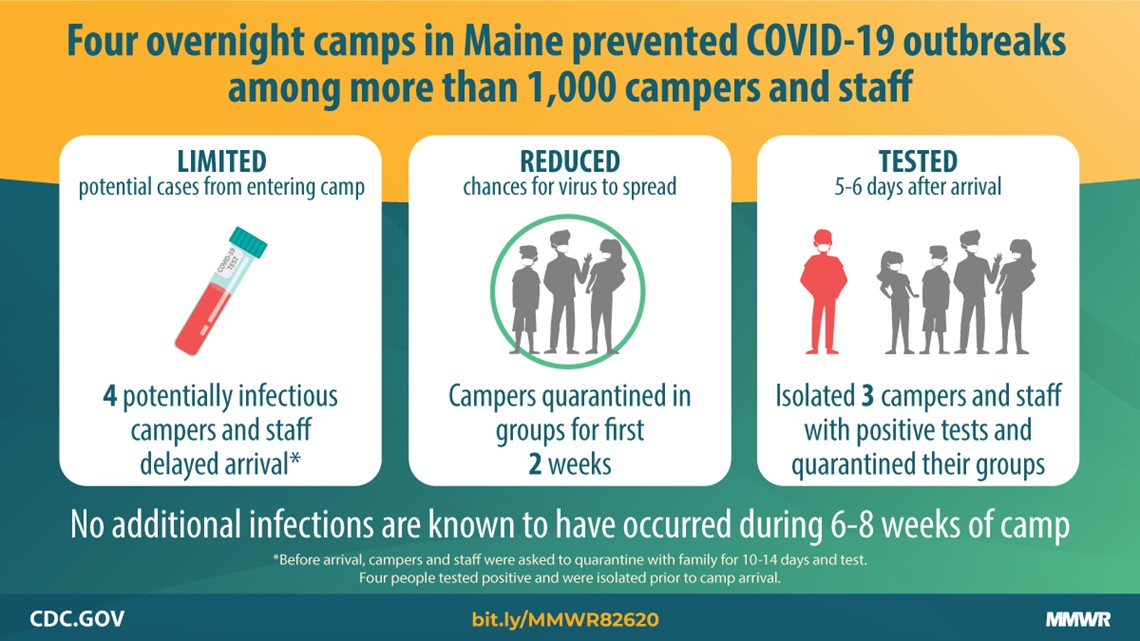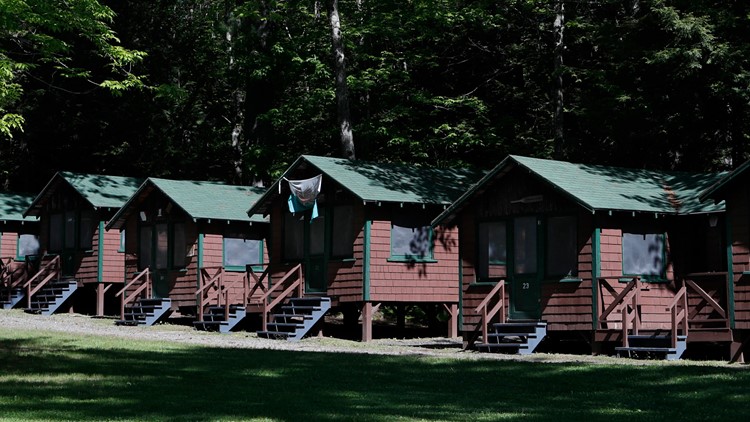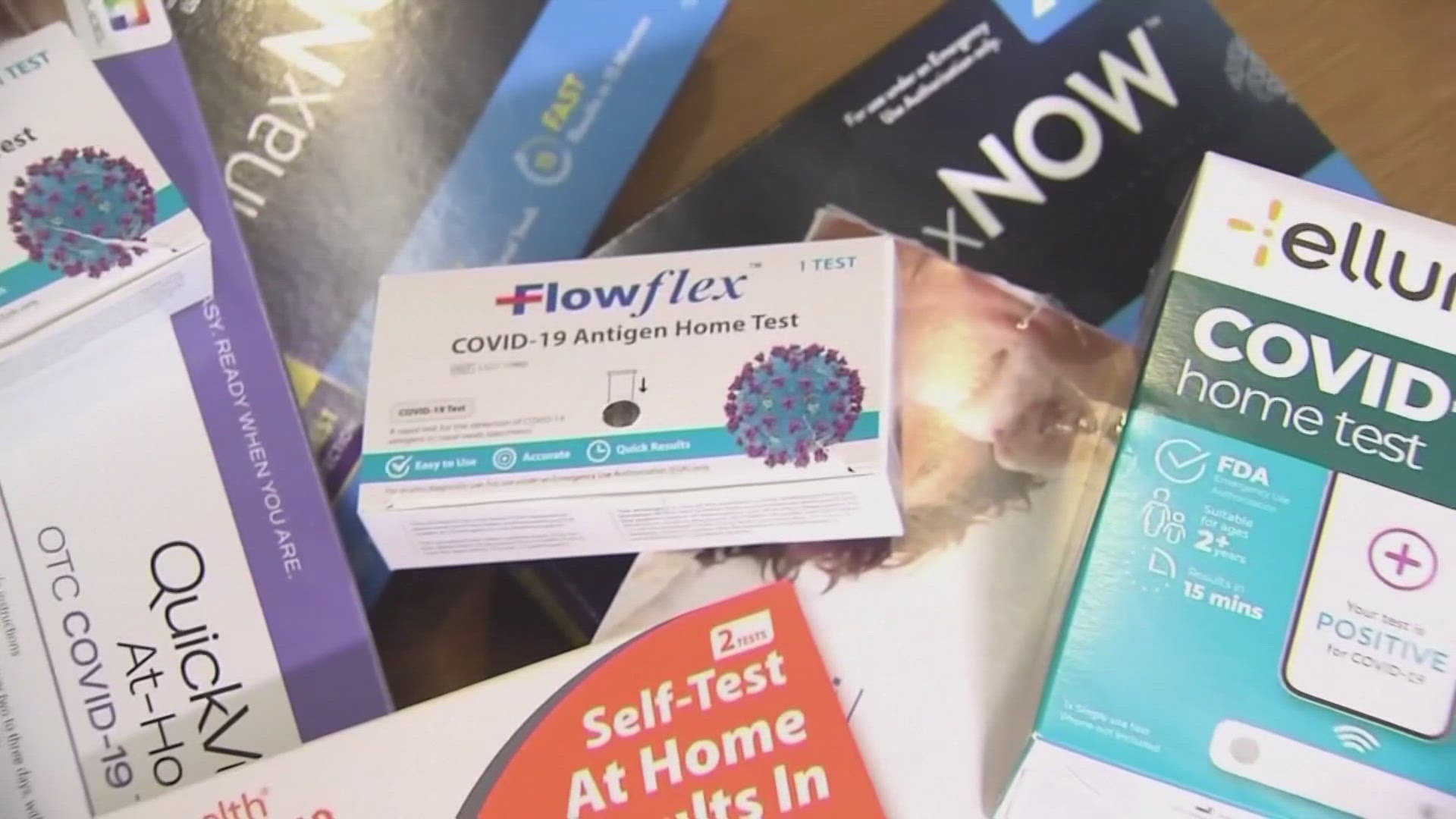ATLANTA — In its weekly Morbidity and Mortality report, U.S. Center for Disease Control (CDC) doctors examine COVID-19 transmission in overnight camps, specifically citing four camps in Maine that successfully prevented outbreaks. In Maine, about 20 percent of overnight camps opened this summer amid the pandemic.
The CDC says between June and August, four overnight camps in Maine successfully prevented COVID-19 outbreaks among more than 1,000 campers and staff members.
The CDC says these camps successfully used nonpharmaceutical interventions (NPIs) to prevent and mitigate COVID-19 transmission, including prearrival quarantine, pre- and post-arrival testing and symptom screening, cohorting, use of face coverings, physical distancing, enhanced hygiene measures, cleaning and disinfecting, and maximal outdoor programming.
Three crucial actions taken helped successfully prevent outbreaks:
- Limited the number of potential cases from entering camp by delaying arrival for four potentially infectious campers
- Reduced the chances for the virus to spread by cohorting campers and staff for the first two weeks
- Re-tested campers and staff 5-6 days after arrival, and isolated three campers and staff with positive tests, and quarantined their groups


The CDC says “These findings have important implications for the successful implementation of COVID-19 mitigation strategies in other overnight camps, residential schools, and colleges.”
During the camp sessions, testing and symptom screening enabled early and rapid identification and isolation of attendees with COVID-19.
Among the 1,022 campers and staff from 41 states, one territory, and six international locations, 1,010 were tested before arrival and 12 attendees who had completed a period of isolation after receiving a diagnosis of COVID-19 2 months before arrival were not tested.
Four asymptomatic camp attendees tested positive before arrival. They delayed their arrival to camp, isolated for 10 days, remained asymptomatic, and did not receive any further testing before arrival or for the duration of camp attendance.
Approximately 1 week after camp arrival, all 1,006 attendees without a previous diagnosis of COVID-19 were tested, and three asymptomatic cases were identified. Following isolation of these persons and quarantine of their contacts, no secondary transmission of SARS-CoV-2 occurred.
Read the full report here:
Maine CDC Director Dr. Nirav Shah says, “This study shows that positive outcomes are achievable, even in challenging circumstances, when science guides the creation of safety protocols and when practitioners adhere to those protocols."
"We applaud Dr. Blaisdell for her excellent analysis, and we thank Maine camp owners, staff, and families for prioritizing health and safety under the State’s public health guidelines for camps and through promising new approaches," Dr. Shah said.
The CDC says although there’s no single intervention the can prevent the spread of COVID-19, a multilayered use of NPIs allowed camps to prevent transmission quickly and identify campers or staff members with COVID-19 to successfully mitigate the spread.
Testing and quarantine before arrival were essential to identifying infection and preventing spread, the CDC says. Prearrival testing with timely results, strict quarantining, and NPI use during transit were important, as was conscientious NPI use in the first 2 weeks after arrival.
The CDC says understanding successful interventions to prevent and mitigate COVID-19 transmission in overnight camps has important implications for similar congregate settings such as day camps and schools with the same age range.
NEWS CENTER Maine Coronavirus Coverage
At NEWS CENTER Maine, we're focusing our news coverage on the facts and not the fear around the illness. To see our full coverage, visit our coronavirus section, here: /coronavirus



